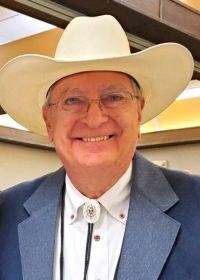Say, Joe, what “kinda” book do you write?
Jul 15, 2025 by E. Joe Brown

I asked the internet to describe the historical fiction genre, and here is what popped up:
Historical fiction is a literary genre where fictional stories are set in the past, often incorporating real historical events, figures, or settings. It aims to provide an authentic and immersive experience of a particular period by blending fictional narratives with historical accuracy in details like social norms, customs, and cultural practices.
Key Characteristics of Historical Fiction:
Setting in the Past -
The primary defining feature is that the story takes place in a past era, typically at least 50 years before the author's time, according to Jericho Writers.
- I chose a little over a hundred years ago, back when my Granddaddy Kelly was a cowboy on the Miller’s 101 Ranch.
Historical Accuracy -
Authors strive to accurately portray the period by researching details about clothing, language, customs, and social structures, thereby creating a believable and immersive experience.
- I’ve spent hours doing the research. The era of World War I and the Roaring Twenties has been well documented. I may still "mess up," but getting it right is very important.
Fictional Elements -
While rooted in history, the plots, characters, and specific events in historical fiction are often invented by the author.
- This is true in the Kelly Can Saga Series. But I try to make the events something that could have happened, and that’s important too. I have real people as characters in my novels, like the Miller brothers, oilmen J. Paul Getty and Harry Sinclair, as well as several others. But I have invented many characters, including my protagonist. The storyline could have happened the way I depict it.
Integration of Real Events/Figures -
Historical fiction can incorporate real historical events, figures, or settings as a backdrop for the fictional narrative, allowing readers to explore history through a fictional lens.
- People like Getty, Sinclair, the Millers, and their 101 Ranch all existed and were movers and shakers in Oklahoma at the time of my story. The Hotel Tulsa was a famous hotel where oilmen consummated many million-dollar oil deals in the lobby and restaurant. I chose to include those along with some of the same things you may have seen in the movie "Killers of the Flower Moon." I wrote those into my story before I was aware of David Grann and his masterpiece.
Engaging Storytelling -
Historical fiction combines the excitement of a good story with the educational value of learning about the past.
- Engaging storytelling is a goal, and I aim to reach it.
Humanizing History -
It allows readers to connect with historical events and figures on a more personal level by imagining their thoughts, feelings, and daily lives.
- I hope my readers can immerse themselves in each scene and live the story alongside Charlie and Susan.
Exploring Themes -
Historical fiction often explores universal themes such as love, loss, war, social change, and resilience, offering insights into the human condition across various eras.
- I've hit every one of these in the first three novels. Hopefully, in each one, but I'm confident that you'll find them all by the end of Dilemma.
Educational Value -
Historical fiction can be a powerful tool for learning about the past, offering a more engaging and accessible way to understand history than traditional textbooks.
- Nothing would please me more than for my stories to spark enough interest in a reader so they head to a library or somewhere to research history for themselves. We all learn a great deal from our ancestors.
I hope this answers a question you may have had, and I also hope you can see how I’m hoping to weave a little storytelling into the world of Charlie and Susan Kelly, a little over a hundred years ago.
Happy Trails,
Joe
_w200_h/A%20Cowboy's%20Dilemma%20-%20Ebook%20Cover%20(1)_06280522.jpg)
